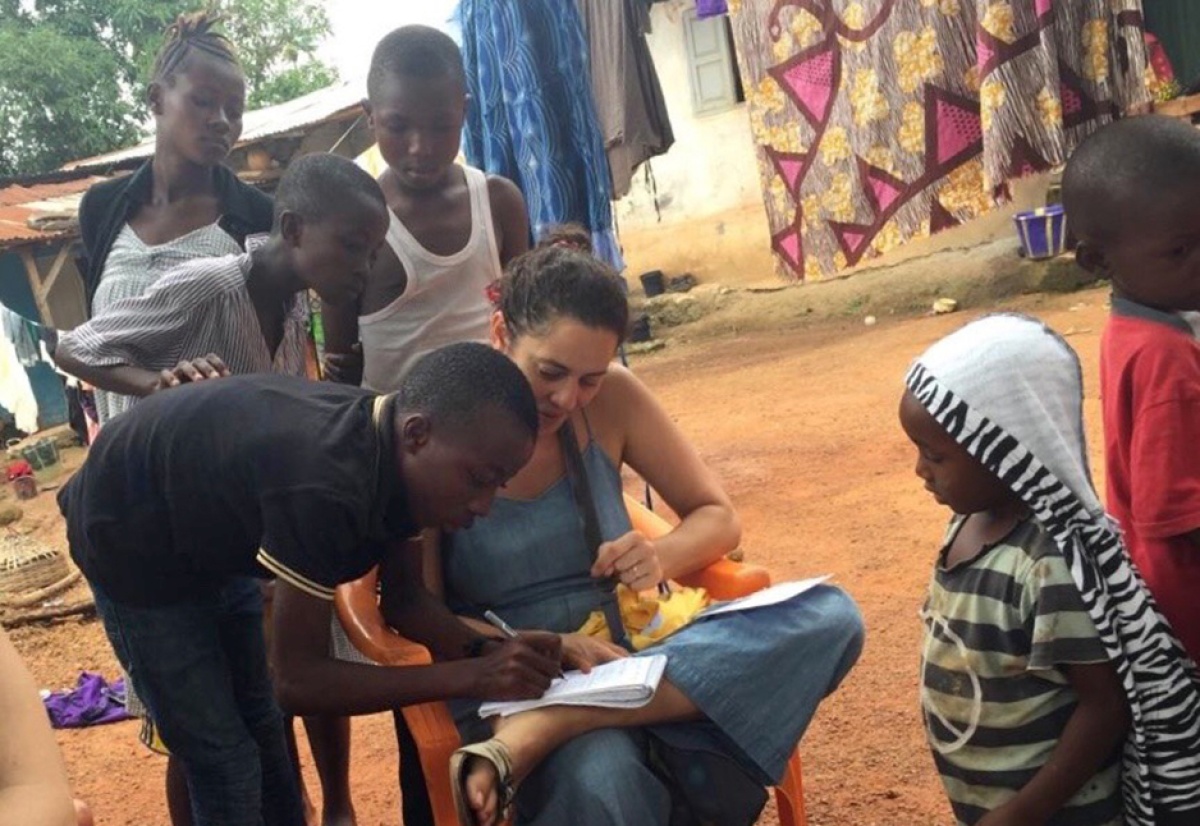New Yorker’s Ariel Levy Reflects on Ophelia Dahl, and Optimism as a “Moral Choice”
Posted on Jun 7, 2018

The New Yorker staff writer Ariel Levy has an intimate understanding of pregnancy and loss. On her second day of a trip to Mongolia in 2013, she went into premature labor in her hotel bathroom and delivered her 5-month-old son, who died within 24 hours.
She wrote about the experience later that year in an article for The New Yorker, “Thanksgiving in Mongolia.” She then expanded the story into her New York Times bestselling memoir, "The Rules Do Not Apply," which published in March 2017.
By that time, Levy had spent nearly four years mulling over the delicate balance of life and death as it relates to pregnancy. Partners In Health has worked for decades to improve that balance and to make childbirth much safer in some of the world's poorest places. When the opportunity arose for Levy to profile Ophelia Dahl, a personal friend and PIH co-founder, she didn’t hesitate.
Last October, Levy traveled with Dahl to Sierra Leone. The country choice was intentional; the West African nation has one of the worst maternal mortality rates in the world, with 1 in 17 women dying in pregnancy or childbirth. Levy wanted to explore PIH’s work, Dahl’s role in shaping it, and the other side of her personal tragedy—what happens when a mother dies in childbirth.
That profile, "Ophelia Dahl's National Health Service," appeared in The New Yorker in December.
Levy recently answered questions from PIH staff about her travels, aspects of her Dahl profile she chose not to include, and her take on the importance of universal health care.
You’ve traveled a lot, including to poor countries. How was Sierra Leone unique? What struck you?
I had never been to a country before in which almost half the hospitals operate—insofar as they can—without the benefit of electricity or running water. I mean, that still blows my mind. If you're having an emergency, you think, "If I can just make it to the hospital, I'll be OK." But in Sierra Leone, because of the condition of the roads and the rarity of a working, gassed-up vehicle, making it to the hospital is no small project. And once you get there, there's a real limit to what can be done without basic functioning utilities.
You have written about your personal experience in Mongolia and the realities of what care is like in developing countries. How did that shape your reporting in Sierra Leone, which has one of the highest maternal mortality rates in the world?
So that was my initial point of connection with this story: I lost a baby, which seemed to me like a tragedy; it felt to me like a crime against nature at the time. When I heard that 1 in 17 women died in Sierra Leone during pregnancy or birth or its immediate aftermath, I was struck (and that's the right word: I did actually feel struck) by what a radically—horrifically—different reality that is. In America, you get pregnant, and somewhere in your mind you are aware that the worst thing that could happen is that your baby might die. In Sierra Leone, you get pregnant, and you are aware that YOU might die.
What intrigued you about Ophelia? How did your personal relationship and past experiences with PIH inform your conversation and subsequent writing of the piece?
Well, like every other kid, I loved Roald Dahl's work growing up. The thought that in one story I could consider the way his imagination shaped this person, Ophelia, whose own imagination, in turn, shaped an organization that has saved and improved the lives of millions of people all over the world, I just thought that could be pretty cool. And you put that together with the history of Sierra Leone, and the Ebola crisis, and the life-and-death struggle of mothers and babies...I mean, all I can say is, “Sheesh!"
Were there any moments from the trip that stood out to you, but didn’t make it into the piece?
I met a woman at Koidu Government Hospital (in eastern Sierra Leone) who had just lost a baby because of a placental abruption, which is exactly how I lost a baby. She had to lay there in the recovery area with several other women who had just given birth, who were holding their living infants in their arms. I found that very close to unbearable. She did not seem any less devastated than I was when that happened. But when that happened to me, everybody asked, "Did they figure out what went wrong?" People aren't going to ask her that. She doesn't live in a society where people have the luxury of expecting things will work out the way they want them to.
PIH takes pride in doing whatever is possible for patients. Yet, there are always people who say what we’re proposing can’t be done. What gives you hope, if anything, that social justice solutions like universal health care are possible?
Ophelia told me that pessimism is the worst possible expression of privilege. Because then you're basically writing off millions of people who simply can't afford to think that way: they can't look at the statistics and conclude, "You know, it doesn't look so good for my family. I think we'll just give up." I try to hang on to that idea when I feel hopeless, that optimism is a moral choice. That the alternative is a failure of not just empathy, but imagination.

